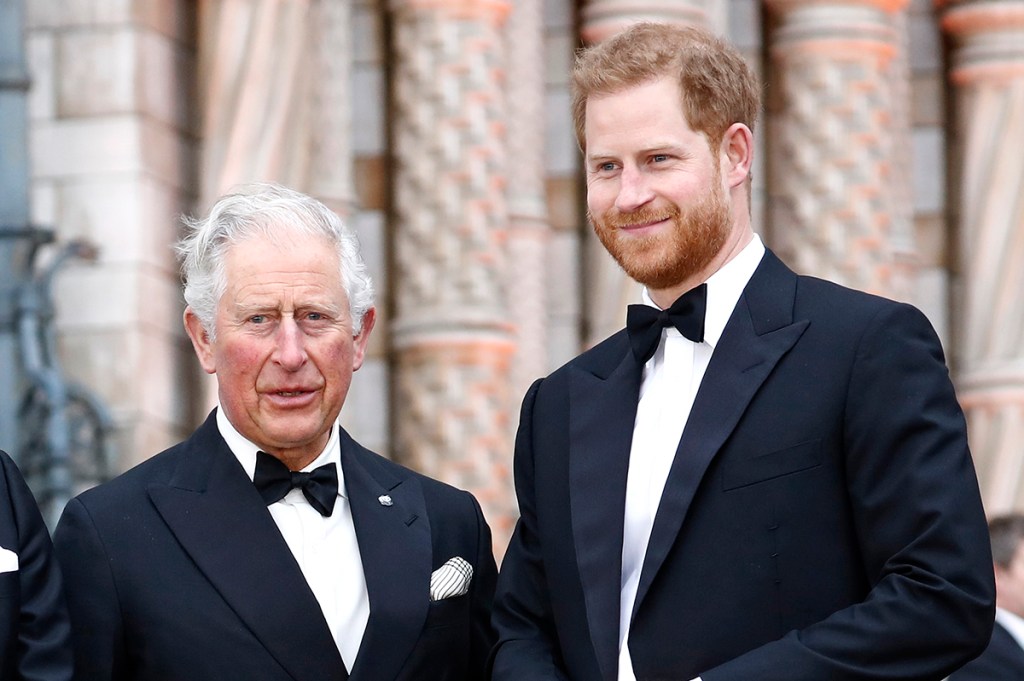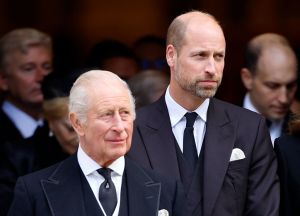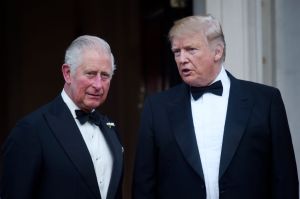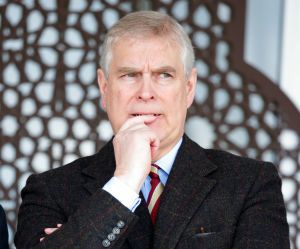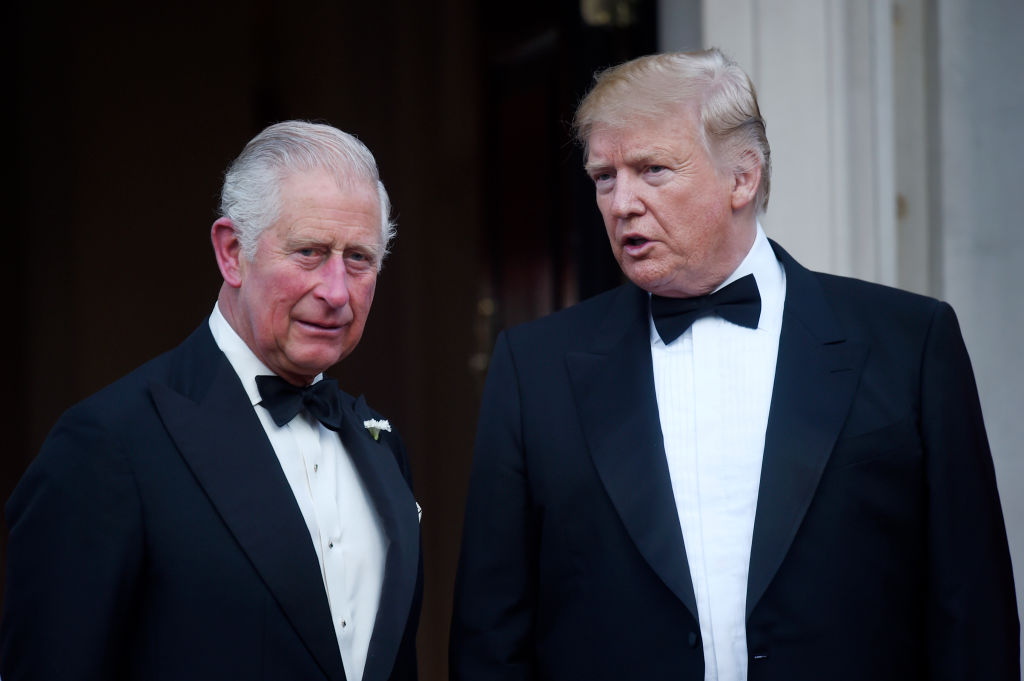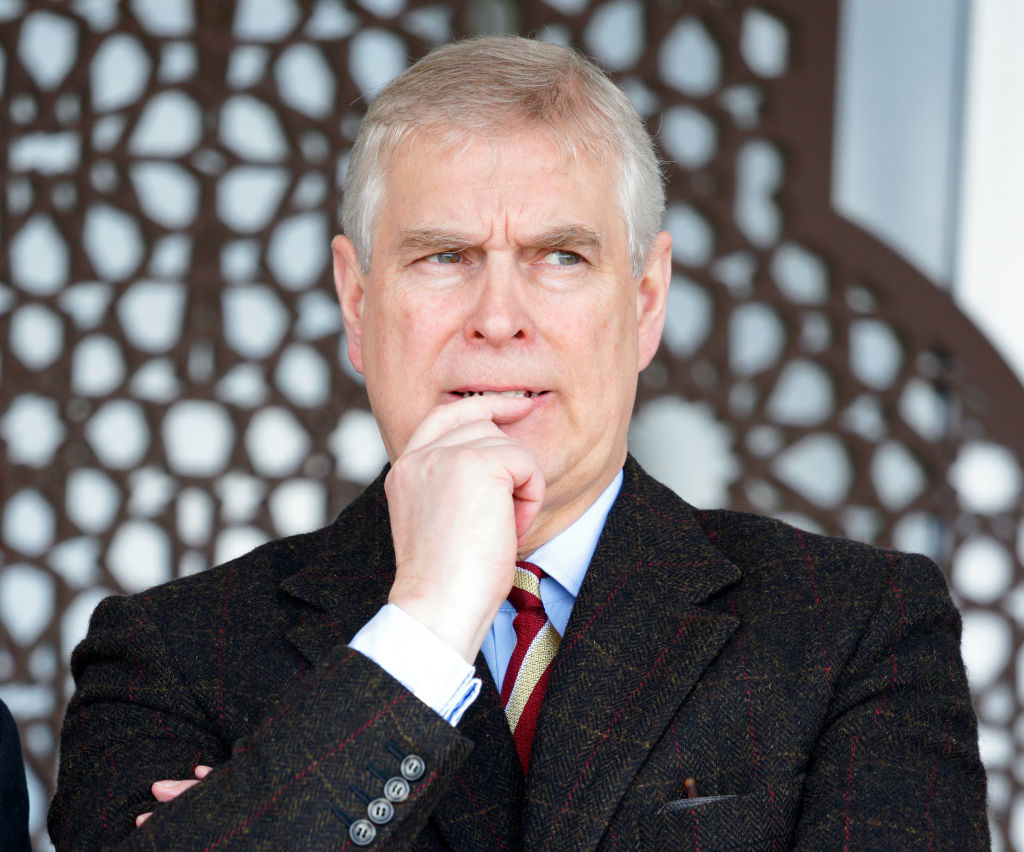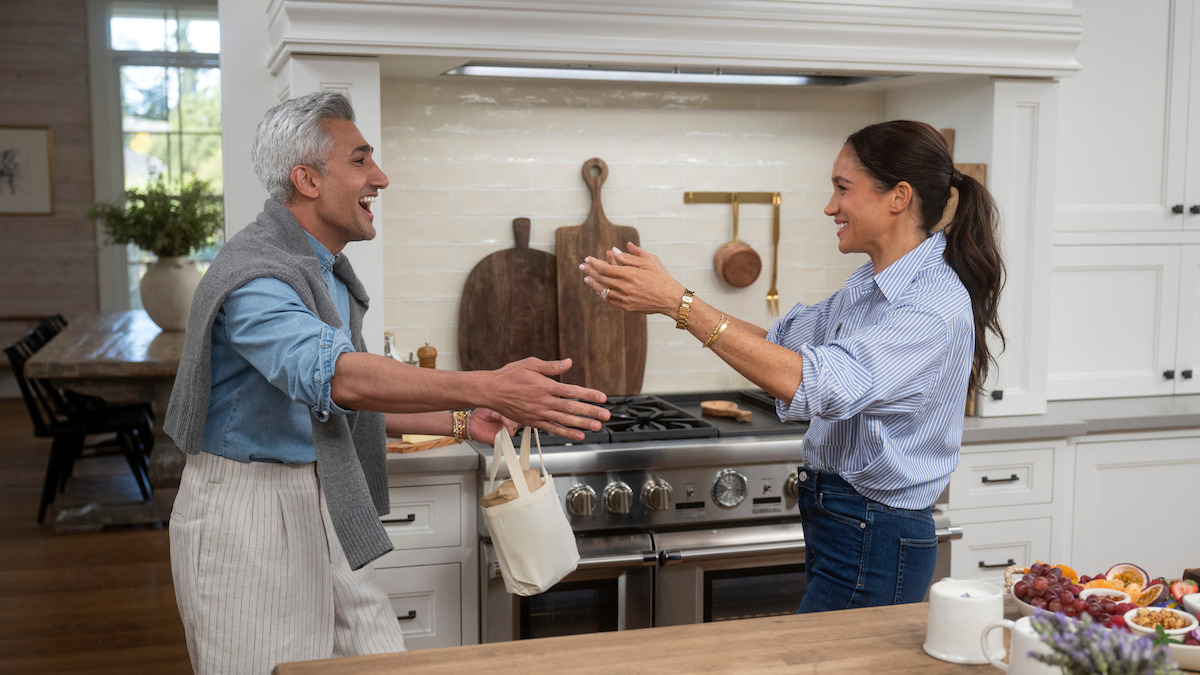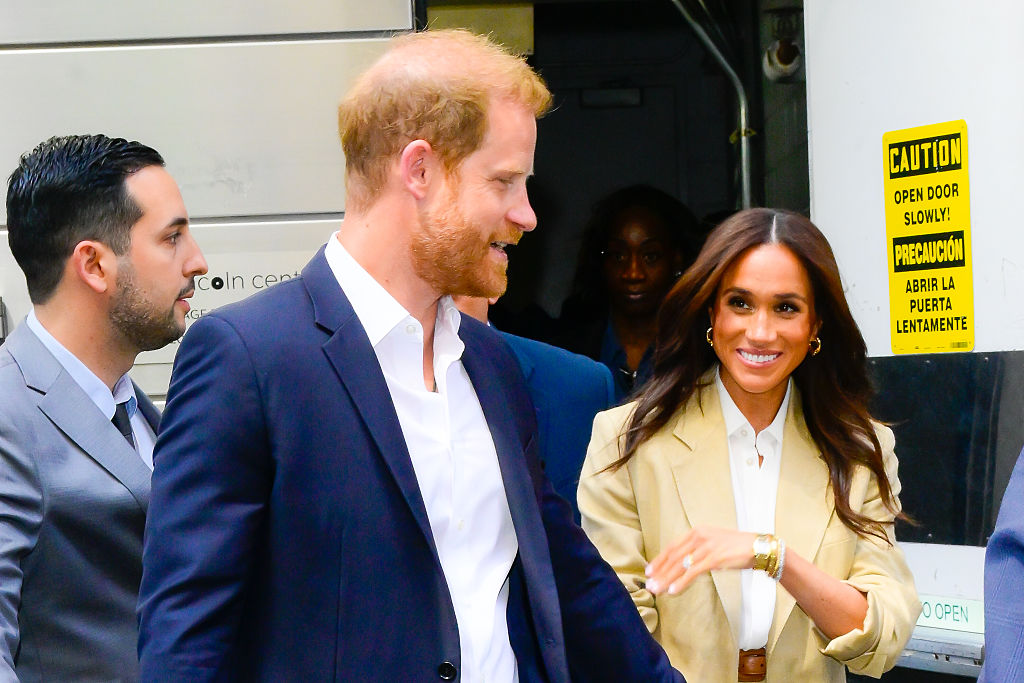‘Man passes misery on to man,’ wrote Philip Larkin. ‘It deepens like a coastal shelf.’ The coastal shelf in Montecito, California is not only deepening, it’s practically sinking into the earth’s core, as the former Sussexes continue to blight the world with an ongoing campaign of soft-focus sadness and sorrow. This time Harry’s flying solo, with last week’s clodhopping broadside spread to the world via a podcast hosted by Dax Shepard, a B-list Hollywood chum of Markle’s, that has raised weary hackles in Buckingham Palace yet again and begged the question: why?
I really do wonder when the Sussexes will realize their strategy of vulgar, self-serving public soul-baring can only end in (more) tears, hurt and recrimination. There seems to be no happy ending to this dismal drama of passive-aggressive blaming and shaming. It is especially egregious now, given the recent passing of the Duke of Edinburgh and the grief that is still being processed by the British royal family. Presumably, Harry’s own pain takes precedence over his father’s and his grandmother’s at a time like this.
But anyway, talking of fathers, we hear that Harry’s been having a few more thoughts on his, while brooding with the chickens over a matcha latte in the lush grounds of his $14 million Californian estate.
Speaking to Shepard, Harry said of Charles that, ‘when it comes to parenting, if I’ve experienced some form of pain or suffering because of the pain or suffering that perhaps my father or my parents had suffered, I’m going to make sure I break that cycle so that I don’t pass it on.’ A baffling comment, given that talking about his suffering and pain seems to be Harry’s default setting these days.
Having already expressed pity for his brother and father (‘I feel sorry for them…they’re trapped’) to Oprah in March, the deluded prince still signally fails to realize how he too has been trapped, by forces around him, into a vortex of highly-bankable, organic banality and self-nurturing solipsism.
This latest sniping not only at his dad, but by implication, the recently-widowed Queen, has gone down like a flat tire in the UK. On Saturday, the Times of London revealed that Prince Charles is ‘understood to feel bewildered that he has been criticized again by Harry’. Hardly surprising.
But family be damned, there’s a new program about the Sussexes to promote and Harry’s appearance on the podcast was intended to talk up a ghastly-looking TV documentary out this week, a co-production with Oprah Winfrey on Harry’s pain (The Me You Can’t See, no, really). The show, which debuts on Apple+ on May 21, proves that when it comes to dealing with pain, anguish and bitterness, really no therapy beats million-dollar deals and a lifestyle of genteel suffering in a mansion. Listening to the podcast, you could almost hear the relief in Dax Shepard’s voice, to be finally meeting someone who could match his own past traumas, that include horrific childhood sexual abuse and crack/alcohol addiction.
Let’s be clear: by recent royal standards, Prince Charles’s childhood was difficult. He was born to the-then Princess Elizabeth in 1948 and saw his mother crowned when he was five, making him heir, a position to which he has had quite some time to become accustomed. His father, a decent but eminently practical man with little patience for shy sensitive boys, packed him off to Gordonstoun, one of the most brutal boarding schools in Britain. His mother, busy ruling the nation and Commonwealth, was not, by all accounts, hands-on, Charles later recalled as being ‘not indifferent so much as detached’. He also remembered Prince Philip snorting that Charles was simply ‘weedy, effete and spoiled’. Groomed for the throne from an early age despite his deep alarm at the prospect and preferences for a quiet, bookish polo-playing existence, the Prince of Wales went off and rather distinguished himself in the armed forces, before setting up a philanthropic foundation, the Prince’s Trust and generally carving out a full, if sporadically unsatisfying life.
And let’s not forget, Harry’s early years were blighted by the fallout from his parents’ toxic marriage and his mother’s horrific death. Charles, a loving, often bewildered single parent, did what he could to cope with the traumatized boy, barely a teenager when his mother died. But for Harry, unlike his taciturn elder brother, the pain and hurt was evident throughout his youth and into his 20s. The bad behavior at London nightclubs, the ostentatious weed-smoking at the Rattlesnake pub led to Club H, a private club set up for Harry and his friends at Highgrove by his dad, desperate to let his son blow off steam away from the paparazzi. There were the plentiful foreign expeditions and vacations and an indulgent Eton education, leading into a military career, the pinnacle of Harry’s ambitions since boyhood. Yet the all-cosseting reassurance of the royal machine was always there to catch him when he found himself in a scrape — whether it be punching a paparazzo, dressing up as a Nazi at a costume party, referring to fellow military cadets in racist terms, stripping off for a rowdy game of pool in Vegas — up to the point where he introduced his American bride to be and informed a startled family ‘What Meghan wants, Meghan gets’.
But since then, the Queen and the Prince of Wales’s offices have strived to keep Harry happy at all costs, contorting the creaking machinery of royalty around him, even as bit by bit, he removed himself further from the family bosom and his role. Mindful of the disaster of Diana and the very public approbation of the royals that followed her death, palace officials and the throne have been especially keen to ensure that a new bride is not brought unwillingly into ‘the Firm’ only for another fairytale nightmare to unfold.
But despite the palace’s remolding around Harry and Meghan’s whims and desires over the years, the couple have managed to sustain quite a brilliant campaign of victimhood and suffering. This conveniently ignores such basic facts as Prince Charles encouraging the match with Meghan, instructing William to be supportive, despite the latter’s misgivings, even giving her away at the wedding when her own father became unavailable. ‘I asked him to…and he immediately said, “Yes, of course, I’ll do whatever Meghan needs, and I’m here to support you,”’ revealed Harry in the 2018 documentary Prince, Son, and Heir: Charles at 70.
And Charles has indeed supported Harry, whose expenditure on wellness retreats, banana bread, organic nursery wall-paint, luxury Californian mansions and goji berry smoothies has shot through the roof in recent years. Official records show that as well as a sizable inheritance from his mother, the bulk of Harry’s income was allocated by HRH The Prince of Wales, generated through the Duchy of Cornwall, and had been, ever since he and his brother first established their offices in support of his grandmother. In total, until his exit, Harry received five percent of his gross income as a working royal from the Sovereign Grant, funded by UK taxpayers. The substantial remainder was from his pa.
Around the time of ‘Megxit’, one senior palace official expressed bewilderment at the couple’s decision to disengage from the family, telling a British newspaper that ‘teams’ of royal staffers had been ‘working around the clock to come up with suitable roles and challenges for the couple in the future, at great inconvenience to everyone’.
‘I know the Prince of Wales has several times reached out to Meghan. They get on and share a love of music. I know he invited her to a preview of an exhibition at the palace. The Queen has been a source of strength too and invited them both to Balmoral where family problems are usually aired.’
Another exasperated palace insider told the Daily Mail, ‘People had bent over backwards for them. They were given the wedding they wanted, the house they wanted, the office they wanted, the money they wanted, the staff they wanted, the tours they wanted and had the backing of their family. What more did they want? The family understands that they want to do something different and is perfectly willing to help them. People are just devastated.’
In the podcast Harry compared his grueling royal life as being a cross between The Truman Show and a zoo. This is a very apt analogy for the royal existence, although right now we could say his life is somewhere between a millionaire’s private game reserve and Groundhog Day.
Harry’s latest grenade into the bosom of the royal family last week, a family still coming to terms with the passing of irascible patriarch Philip, surprised no one and upset everyone who had hoped that Harry and Meghan would, having got things off their chest with Oprah recently, now follow their own request, and leave themselves alone.
‘Nobody is shocked anymore,’ a source at Buckingham Palace told the Times of London. ‘It is more “Here we go again.” But he should be told that these grievances should be aired in the privacy of your own home. Don’t do it publicly in a podcast. Get on with your life.’



